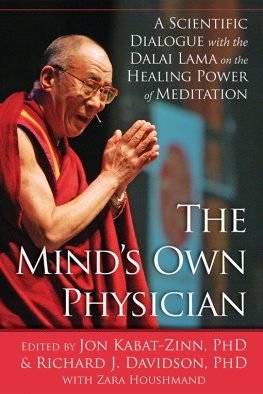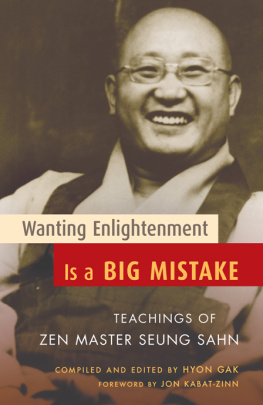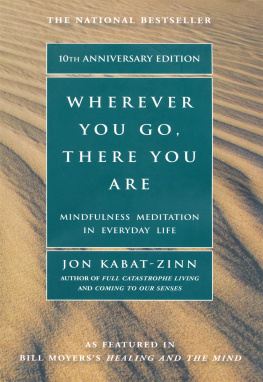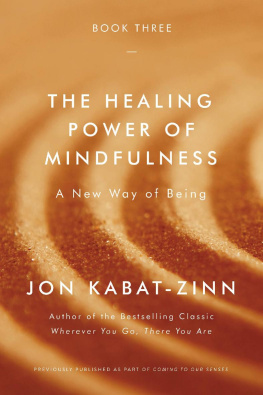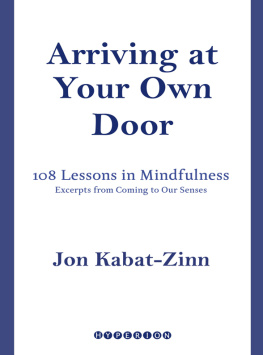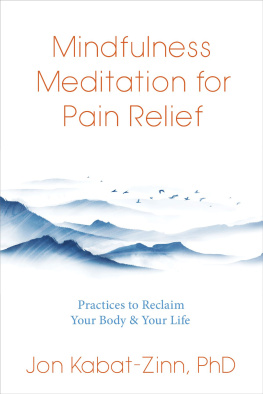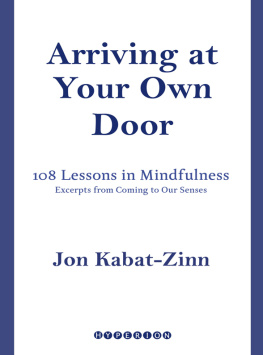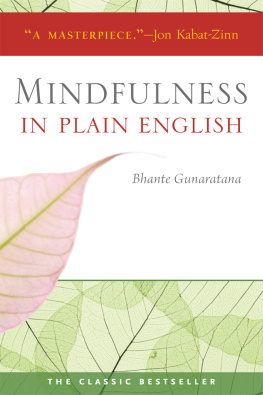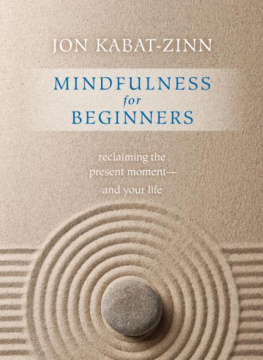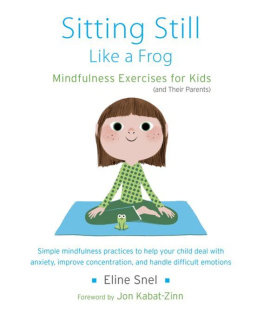(editor, with J. Mark G. Williams)
(editor, with Richard J. Davidson)
Copyright 2019 by Jon Kabat-Zinn, Ph.D.
Cover design by Joanne ONeill
Cover copyright 2019 by Hachette Book Group, Inc.
Hachette Book Group supports the right to free expression and the value of copyright. The purpose of copyright is to encourage writers and artists to produce the creative works that enrich our culture.
The scanning, uploading, and distribution of this book without permission is a theft of the authors intellectual property. If you would like permission to use material from the book (other than for review purposes), please contact permissions@hbgusa.com. Thank you for your support of the authors rights.
Hachette Books
Hachette Book Group
1290 Avenue of the Americas
New York, NY 10104
hachettebooks.com
twitter.com/hachettebooks
Originally published in hardcover as part of Coming to Our Senses by Hyperion in January 2005.
First Edition: February 2019
Credits and permissions appear beginning and constitute a continuation of the copyright page.
Hachette Books is a division of Hachette Book Group, Inc.
The Hachette Books name and logo are trademarks of Hachette Book Group, Inc.
The publisher is not responsible for websites (or their content) that are not owned by the publisher.
The Hachette Speakers Bureau provides a wide range of authors for speaking events. To find out more, go to www.hachettespeakersbureau.com or call (866) 376-6591.
Library of Congress Control Number: 2018957304
ISBNs: 978-0-316-41177-6 (trade paperback), 978-0-316-52203-8 (ebook)
E3-20190129-JV-NF-COR
for Myla
for Tayo, Stella, Asa, and Toby
for Will and Teresa
for Naushon
for Serena
for the memory of Sally and Elvin
and Howie and Roz
for all those who care
for what is possible
for what is so
for wisdom
for clarity
for kindness
for love
Mindfulness for all!
That is a wild thought.
But why not, when you come right down to it? Especially at this moment in time, stressed as we are individually and collectively in so many different ways, both inwardly and outwardly.
And in terms of the wisdom to transform the world, it is not hyperbole. That wisdom is a potential that is wholly distributive, lying within each one of us in small but, as I hope to make clear, hardly insignificant ways. That wisdom is cultivatable through mindfulness in ways both little and big. I have had the privilege of seeing it emerge and flourish in many different domains over the past forty years. Now, that incipient wisdom is spreading throughout the world, becoming stronger and ever more an imperative.
The Evolutionary Import of Meditative Awareness
If it is part of the evolutionary glide path of us humans to progressively know ourselves better, thereby inhabiting a bit more the name we gave our species; if it is also part of the evolutionary glide path of us humans not to destroy ourselves or create nightmare dystopias beyond those we have already managed to perpetrate, we will need to take on a whole new level of responsibility for ourselves, for our own minds, for our societies, and for our planet. Otherwise, if past is any prologue, all of us may unwittingly be contributing either by omission or commission, in tiny ways that may not be so tiny in the end, to creating a highly unhealthy and majorly toxic world that none of us will be happy to inhabit. And that is perhaps the understatement of the millennium. The prevailing dis-ease of humanity is playing itself out increasingly before our very eyes. It is also increasingly harder for any of us to ignore, and we do so individually and collectively at our peril.
So mindfulness for all and the cultivation of greater enacted wisdom in how we conduct ourselves and take care of our world is hardly mere hype or wishful thinking. It may be an, if not the, essential ingredient for our short- and long-term survival, health, and ongoing development as a species. But to be up to the enormity of this challenge, the mindfulness I am referring to has to be authentic, nested within a universal dharma framework nurturing and cultivating wisdom and compassion. As I am using the term, mindfulness is a way of seeing and a way of being, one that has a long history on this planet. It also has considerable momentum at the moment as it moves increasingly into the mainstream of many different societies and cultures in a variety of ways. Axiomatically, the approach I am advocating has to be and is grounded and safeguarded at every level in ethical, embodied, enacted, and ultimately selfless wisdom and action. We might think of mindfulness as one tributary of the human wisdom tradition. While its most articulated roots lie deep within Buddhism, its essence is universal and has been expressed in one way or another in all human cultures and traditions.
As I see it, the increasingly widespread adoption and practice of mindfulness meditation in our individual lives and in our work, and its intentional application moment by moment and day by day in how we respond to the world we inhabit, could potentially provide the very root of authentic well-being, peacefulness, and clarity within our vast diversity of peoples, cultures, and aspirations on the planet. Mindfulness has something to offer all of us as individuals, and as a global human community. I dont think that there is any question that its transformative potential needs to be realizedi.e., made realin an infinite number of creative ways at this particular juncture in the unfolding of our species, nested within our far-more-fragile-than-we-thought-until-recently planetary abode.
As one of many recent indications that mindfulness is moving into the mainstream in broadly influential ways, the very last chapter of the historian Yuval Noah Hararis 21 Lessons for the 21st Century is about mindfulness. In it, he discloses that since a ten-day retreat in the year 2000, he has been meditating every day, plus annually participating in an intensive silent meditation retreat of one or two months duration (with no books or social media during that time). some of them quite terrifying, his most recent work, also a bestseller, distills from all that scholarly investigation twenty-one key lessons for the present. I found it quite revealing and gratifying that, with all the threads Harari so skillfully weaves together from history to reveal the enormous challenges our species is facing now, he explicitly adopts the rigorous practice of mindfulness in his own life and names it as an improbable but perhaps essential element for cultivation if, as a species, we are to thread the needle going forward in facing the new challenges brought on by both information technology and biotechnology, challenges he elaborates in considerable and sobering detail.


